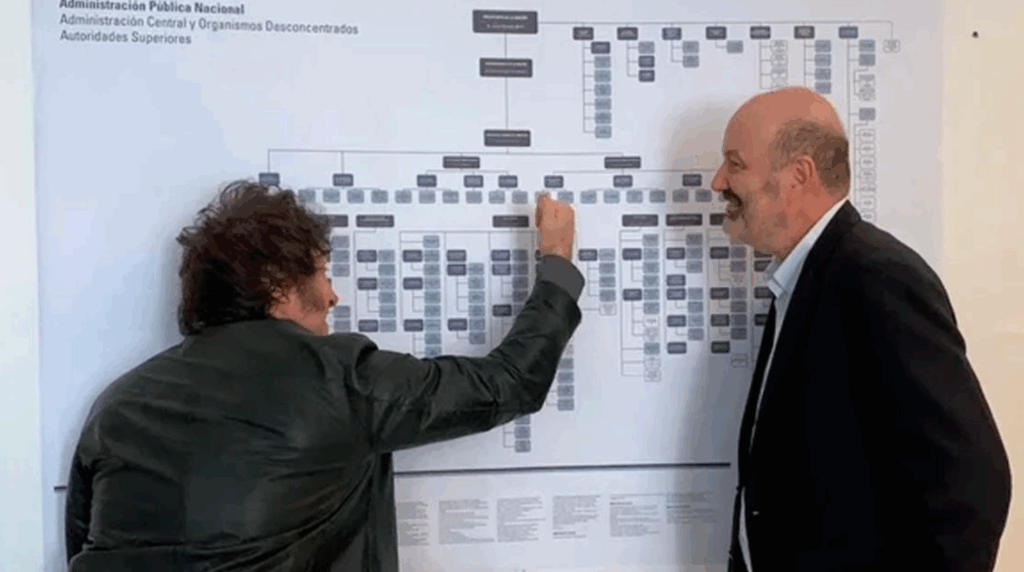BUENOS AIRES (Realist English). Nearly 48,000 public sector workers have been dismissed in Argentina since President Javier Milei took office in December 2023, according to a new report from the Ministry of Deregulation and State Transformation. The cuts — equivalent to 9.6% of the national public payroll — are part of Milei’s aggressive cost-cutting strategy, widely known as the “chainsaw” approach to government.
The report, published this week, estimates the layoffs have generated annual savings of $1.885 billion, with roughly half stemming from unpaid salaries and the other half from reduced infrastructure and operational costs. It remains unclear whether the figure includes severance or compensation packages.
From December 2023 to April 2025, the Milei administration removed 47,925 positions across federal agencies, state-owned companies, and decentralized institutions. The National Public Administration (APN) saw staffing fall by 13.7%, while state enterprises experienced a 16.4% reduction.
Freelancers hired under Argentina’s monotributista system were hardest hit, with a 55.2% drop, followed by employees hired under the Framework Law (Ley 25.164), down 20%. Permanent and temporary workers decreased by 8%, marking the sharpest restructuring of the Argentine bureaucracy in years.
The ministry, led by Federico Sturzenegger, said the cuts reflect the government’s intent to “deliver on promises of efficiency and austerity,” and confirmed that further layoffs are expected this year, along with the elimination of departments deemed non-essential.
The backlash has been immediate. Trade unions have staged multiple general strikes since Milei — a self-styled “anarcho-capitalist” — assumed power. Tens of thousands of public employees have marched against austerity measures, which critics say undermine the public sector’s capacity and social safety net.
Despite the controversy, Milei points to early macroeconomic successes. In 2024, Argentina posted its first fiscal surplus in a decade, and inflation, once among the world’s highest, has dropped sharply. However, these gains have come at a cost: real wages, employment, and domestic consumption continue to decline, raising concerns about the long-term social impact of the reforms.
The administration has vowed to press ahead. “This is not just about cutting costs,” the report said. “It’s about redefining the role of the state in Argentina’s economic future.”
